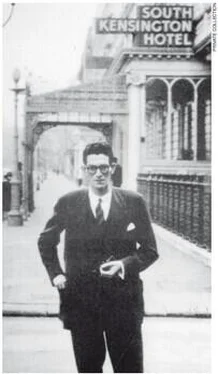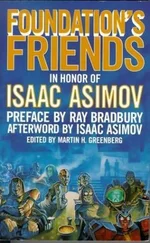Ben Macintyre - A Spy Among Friends
Здесь есть возможность читать онлайн «Ben Macintyre - A Spy Among Friends» весь текст электронной книги совершенно бесплатно (целиком полную версию без сокращений). В некоторых случаях можно слушать аудио, скачать через торрент в формате fb2 и присутствует краткое содержание. Год выпуска: 2014, ISBN: 2014, Издательство: Bloomsbury Publishing, Жанр: Старинная литература, на английском языке. Описание произведения, (предисловие) а так же отзывы посетителей доступны на портале библиотеки ЛибКат.
- Название:A Spy Among Friends
- Автор:
- Издательство:Bloomsbury Publishing
- Жанр:
- Год:2014
- ISBN:9781408851746
- Рейтинг книги:5 / 5. Голосов: 1
-
Избранное:Добавить в избранное
- Отзывы:
-
Ваша оценка:
- 100
- 1
- 2
- 3
- 4
- 5
A Spy Among Friends: краткое содержание, описание и аннотация
Предлагаем к чтению аннотацию, описание, краткое содержание или предисловие (зависит от того, что написал сам автор книги «A Spy Among Friends»). Если вы не нашли необходимую информацию о книге — напишите в комментариях, мы постараемся отыскать её.
A Spy Among Friends — читать онлайн бесплатно полную книгу (весь текст) целиком
Ниже представлен текст книги, разбитый по страницам. Система сохранения места последней прочитанной страницы, позволяет с удобством читать онлайн бесплатно книгу «A Spy Among Friends», без необходимости каждый раз заново искать на чём Вы остановились. Поставьте закладку, и сможете в любой момент перейти на страницу, на которой закончили чтение.
Интервал:
Закладка:
By 1939, however, politics was becoming extremely complicated. In August the foreign ministers of the Soviet Union and Germany signed a non-aggression pact. Philby had become a Soviet agent in order to fight fascism; under the Molotov–Ribbentrop pact, communism and fascism were now effectively in alliance. For the first and only time in his life, Philby seems to have experienced an ideological wobble: ‘What’s going to happen to the single-front struggle against fascism now?’ he asked his new Soviet controller. The relationship cooled markedly. Philby complained that he was not receiving sufficient political instruction. The replacement case officer did not know him, and may not have trusted him. For a time contact was broken off, for reasons that still remain obscure.
That same year, the head of MI5 blandly declared that Soviet ‘activity in England is non-existent, in terms of both intelligence and political subversion’. He could not have been more wrong, for the Soviet network in Britain was not only far more substantial than anything Germany could muster, but also developing new tactics, and encouraging its spies to seek positions within British intelligence itself, where they would have access to secrets of the greatest importance. Anthony Blunt would soon join MI5. Burgess had talked his way into MI6, known as ‘The Hotel’ in Soviet spy code, and helped to haul in Philby after him. ‘I had been told in pressing terms by my Soviet friends that my first priority must be the British secret service,’ Philby wrote. Obediently, he began putting out feelers.
The coolness between Philby and his Soviet handlers was short-lived. In the spring of 1940, The Times sent its star correspondent to France to join the British Expeditionary Force as the paper’s accredited war correspondent. Philby had already memorised elaborate instructions for contacting Soviet intelligence in Paris. He should stand near the Thomas Cook office in Place de la Madeleine with a copy of the Daily Mail ; the Soviet contact would be carrying a copy of the same newspaper. Philby would ask him: ‘Where is the Café Henri round here?’ The man would reply: ‘It’s near the Place de la République.’ Having performed this mini-drama, Philby passed on information he had gathered in the course of his reporting, about British military strength and weaponry, as well as French forces behind the Maginot Line – information of great interest to Moscow, and of even greater interest to Berlin. But whatever qualms he may have felt about the Nazi–Soviet pact seem to have evaporated. Returning to London after the retreat, he hastened to contact Maclean, saying he had brought back ‘extraordinarily valuable materials’ which he wanted to pass to ‘the appropriate hands’. Philby’s loyalties were unchanged, his determination undimmed, and his hints about wanting to join the secret services already bearing fruit, in the shape of Hester Marsden-Smedley.
This, then, was the man who met and befriended Elliott in 1940, a two-sided man who used one side to disguise the other. Nick Elliott loved and admired Philby, the upper-crust, Cambridge-educated bon viveur ; the charming, happily married, conservative clubman; the battle-scarred war correspondent now playing a vital part in the thrilling world of espionage. Elliott had no inkling of the other Philby, the veteran communist spy, and it would be many more years before he finally met him.
See Notes on Chapter 3
4
Boo, Boo, Baby, I’m a Spy
Sir Stewart Menzies, the head of MI6, was very nearly a caricature of what a spy chief ought to be: aristocratic, wily and enigmatic. Some said he was the illegitimate son of Edward VII, a rumour almost certainly untrue that he did nothing to gainsay. Like all chiefs of MI6, he was known as ‘C’, a tradition begun by the initial of the earliest chief, (Mansfield) Cumming. Menzies was a member of White’s Club, rode to hounds, mixed with royalty, never missed a day at Ascot, drank a great deal, and kept his secrets buttoned up behind a small, fierce moustache. He preferred women to men, and horses to both. He was impenetrably polite, and entirely ruthless: enemy spies, foxes and office rivals could expect no quarter. Nicholas Elliott revered ‘The Chief’ for what he called his ‘true sense of values’ – which was his way of saying that Menzies, an Old Etonian and a friend of his father, shared his own view of the world. Outwardly, Kim Philby was equally admiring of Menzies; privately he considered him a prime specimen of the doomed ruling-class elite. ‘His intellectual equipment was unimpressive,’ Philby later wrote, ‘his knowledge of the world, and views about it, were just what one would expect from a fairly cloistered son of the upper levels of the British establishment.’ C was ripe for manipulation.
Like many small, sealed, self-replicating communities, MI6 was riven with internecine feuding. Its senior officers loathed each other, and intrigued ferociously. Claude Dansey, the assistant chief, was described by Hugh Trevor-Roper as ‘an utter shit, corrupt, incompetent, but with a certain low cunning’. Valentine Vivian, ‘Vee-Vee’, who had eased Philby’s entry into the secret world, was an old-style veteran of colonial policing, a stickler for form and protocol who, as the son of a mere portrait painter, lived in a state of permanent social anxiety. He reacted to the smallest slight, real or perceived, with fury. ‘Vivian was long past his best if, indeed, he had ever had one,’ observed Philby. ‘He had a reedy figure, carefully dressed crinkles in his hair, and wet eyes.’ Dansey hated Vivian, and Vivian hated Dansey; Philby’s boss Felix Cowgill feuded with both, and was detested in turn. Philby cultivated, flattered and despised them all, while nurturing his relationships with other branches of intelligence, most notably MI5. The security service was the main customer for his counter-intelligence gatherings, but more than that, it was responsible for counter-espionage within Britain: if Philby ever came under suspicion, then MI5 would come hunting. It was, therefore, an important place to make friends. Philby’s closest contact within MI5 was Guy Liddell, the refined, cello-playing head of counter-intelligence and a regular at the Harris spy salon. A rumpled, genial figure, Liddell looked more like a country banker than a spymaster. ‘He would murmur his thoughts as if groping his way towards the facts of a case, his face creased in a comfortable, innocent smile,’ wrote Philby. ‘But behind the façade of laziness, his subtle and reflective mind played over a storehouse of photographic memories.’ Philby admired Liddell’s professionalism, and feared it.
Secrets are the currency of intelligence work, and among professional spies a little calculated indiscretion raises the exchange rate. Philby took to passing on titbits to selected colleagues, off the record, and they would respond in kind. As Philby put it: ‘The rewards of such unorthodoxy were often generous.’ A secret shared was a friend made, and friendship, or its simulacrum, was the best way to extract more secrets. Philby became a familiar and popular figure in the corridors of both MI5 and MI6, always happy to exchange pleasantries, gossip or confidences, always ready for a drink after work, and then another. Philby’s Soviet handler reported smugly that Agent Sonny was probably ‘the only man in The Hotel without any enemies’.
Menzies saw Philby and Elliott as his protégés, his ‘golden lads’ representing a new generation of intelligence officers, far removed from the whiskery ex-policemen and military leftovers who had dominated pre-war MI6. They were keen, ambitious and well educated (but not intellectuals – C had little time for those). They belonged to the right clubs, and spoke with the right accents. It soon became apparent that both young men were being groomed for promotion by Menzies, who fought off every attempt to lure them away. When the Foreign Office inquired whether Philby might be seconded to the diplomatic service, C rejected the request with a tart note: ‘You know as well as I do the valuable work which Philby is doing for me . . . the essential nature of Philby’s contribution to the war effort compels his present employers regretfully to refuse to let him go.’ Similarly, the King’s private secretary, Tommy Lascelles, sent a note to Guy Liddell telling him that Elliott was being considered for employment as a secretary to the monarch, and asking for his opinion. Liddell replied that he had got to know Elliott ‘in the hurly-burly of the Scrubs’ and found him ‘a pleasant personality highly recommended by Nevile Bland’. He might make a fine courtier. Menzies, whose mother was a lady-in-waiting to Queen Mary, quashed that idea too. He wanted his lads in the inner circle, and Philby and Elliott, for rather different reasons, were only too happy to remain there.
Читать дальшеИнтервал:
Закладка:
Похожие книги на «A Spy Among Friends»
Представляем Вашему вниманию похожие книги на «A Spy Among Friends» списком для выбора. Мы отобрали схожую по названию и смыслу литературу в надежде предоставить читателям больше вариантов отыскать новые, интересные, ещё непрочитанные произведения.
Обсуждение, отзывы о книге «A Spy Among Friends» и просто собственные мнения читателей. Оставьте ваши комментарии, напишите, что Вы думаете о произведении, его смысле или главных героях. Укажите что конкретно понравилось, а что нет, и почему Вы так считаете.












